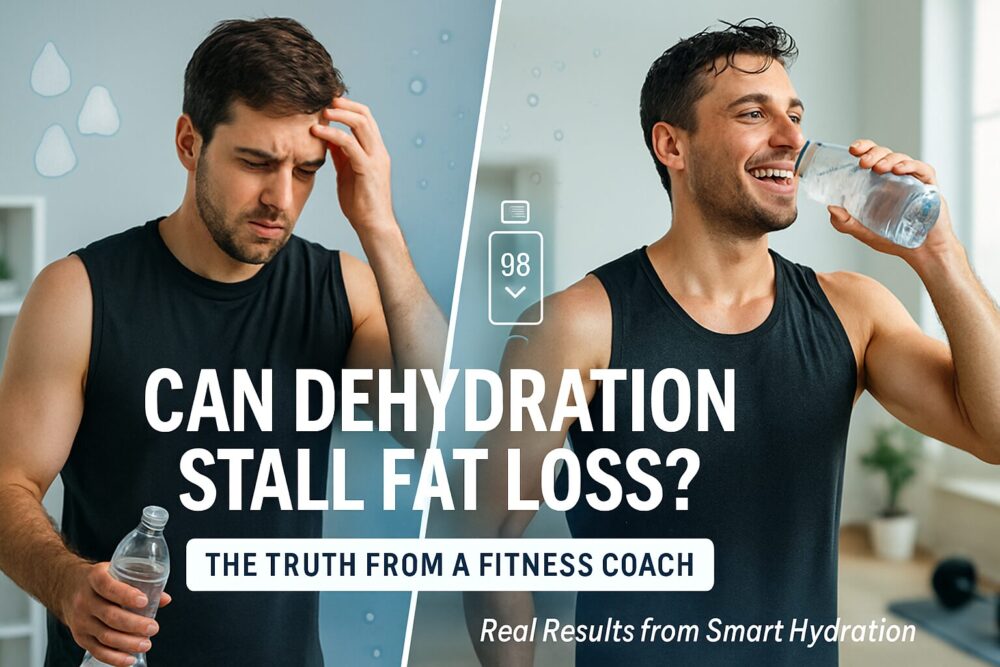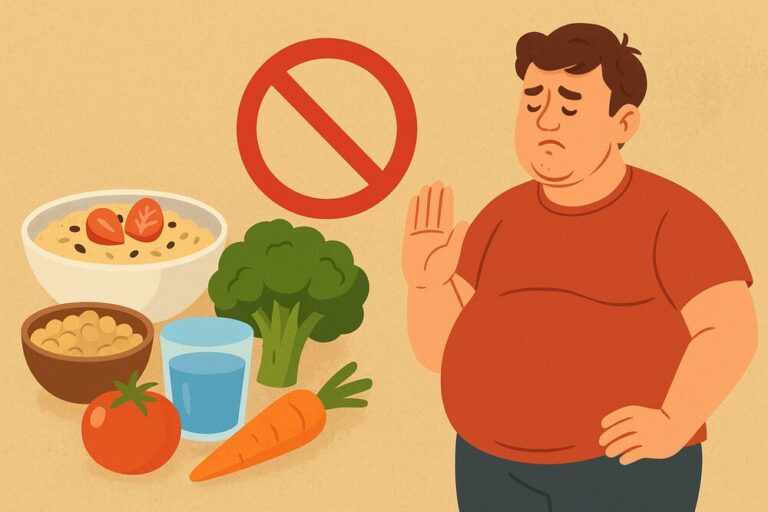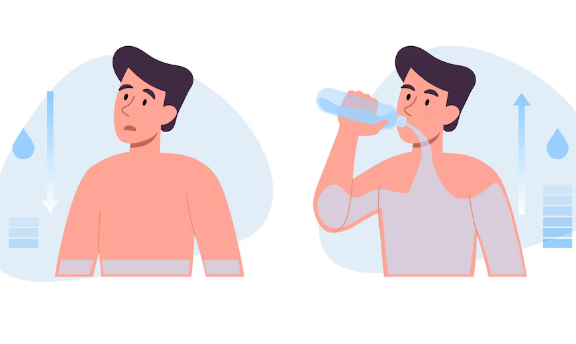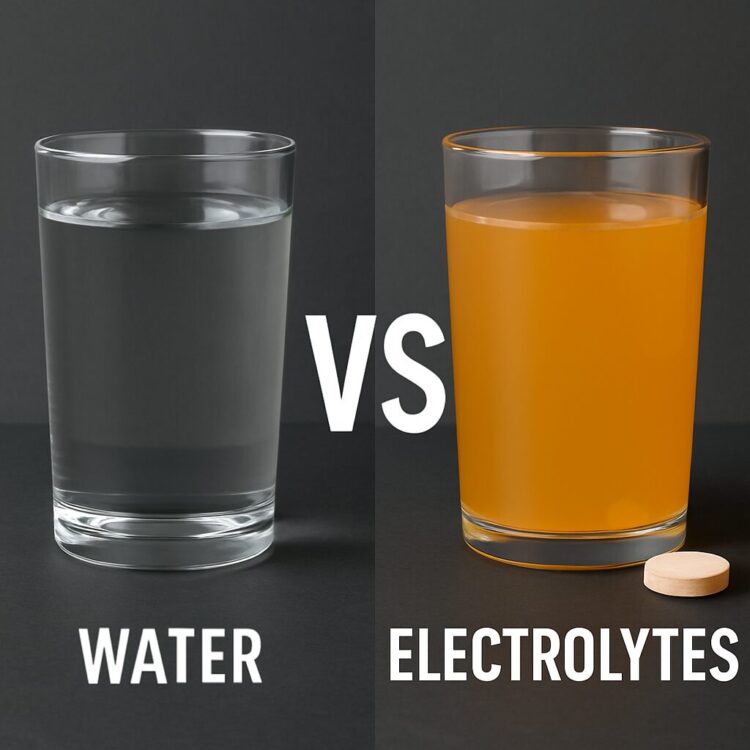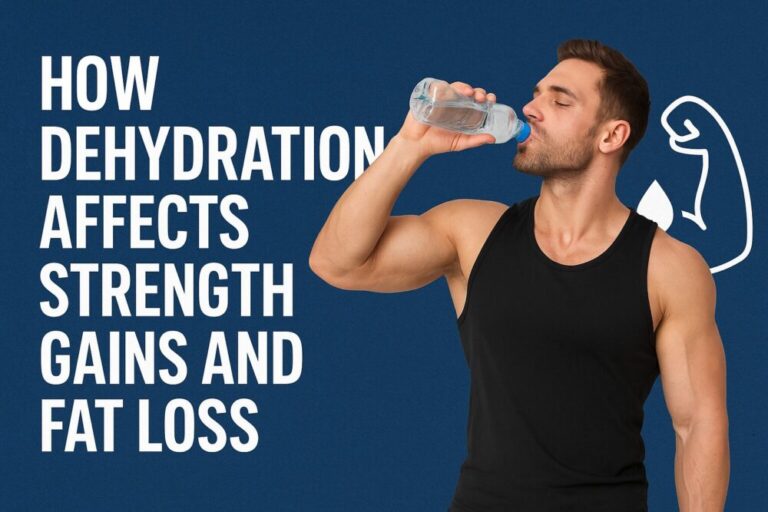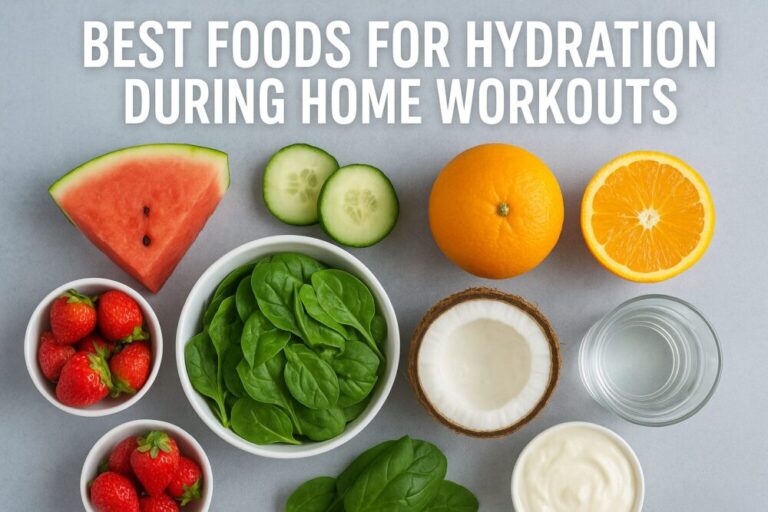When exercising consistently, eating healthily, and engaging in physical activities, but the scale still doesn’t budge, home fitness enthusiasts sometimes overlook a key factor: dehydration. Even something as seemingly minor as not enough fluid intake could hinder progress toward weight loss.
Home fitness coaches like myself have seen clients hit plateaus not due to poor diet or exercise alone, but because they were dehydrated without realizing it.
I will discuss how dehydration impacts fat burning, why it occurs and how to implement an efficient hydration strategy with tools for calculating individual hydration needs.
What Happens to Your Body When You’re Dehydrated?
Dehydration occurs when your body loses more fluids than it takes in, which is all too common among people working out at home without realizing their sweat output. Even mild dehydration can impede vital processes like metabolism, circulation and recovery.
Your body needs water in order to function effectively; when your system doesn’t get enough, symptoms include headaches and muscle aches. This will happen:
- Your cells struggle to use fat efficiently for energy purposes.
- Hormonal imbalance (such as an increase in cortisol levels) occurs.
- Energy levels diminish, leading to less activity overall.
- Muscles become less responsive over time, decreasing performance.
Staying hydrated directly impacts your ability to shed fat. So if home fitness is your goal for weight loss, staying hydrated is more than optional–it is absolutely essential!
4 Ways Dehydration Can Stall Fat Loss (Backed by Science)
Water is essential to life; yet many fitness enthusiasts neglect its relationship to metabolic function, hormonal balance, and daily energy output. Even mild dehydration can sabotage fat loss progress despite your best efforts during workouts and clean eating programs.
Let’s dive deeper into how dehydration hinders fat loss, with scientific backing.
Slowed Metabolism and Reduced Oxidation
Your body relies on water for almost every metabolic process, including lipolysis (breaking down fat for energy) which requires lipolysis for energy. Without enough fluid intake, dehydration reduces your body’s efficiency in breaking down stored fat into energy sources.
Studies published in Frontiers in Nutrition revealed that adequate hydration levels have an immense impact on body composition by supporting resting energy expenditure and fat oxidation processes [source].
Dehydration = slow metabolism = decreased fat burning.
Dehydration Leads to Less Energy and Daily Movement
Dehydration can be an invisible energy drain. As blood volume drops due to decreased fluid levels, your heart works harder while oxygen delivery becomes ineffective, leaving you feeling fatigued, heavy, and less motivated for movement.
NEAT (Non-Exercise Activity Thermogenesis), or the unplanned movements you do throughout the day such as walking or fidgeting around with items on a desk, decreases in response. As this factor contributes to daily caloric burn, when NEAT drops, it’s impact on fat loss potential.
Elevated Cortisol Leads to Fat Storage
Dehydration can act as a stressor on the body and as such, causes your adrenal glands to release more cortisol – an increase in abdominal fat storage that reduces fat metabolism rates, disrupted sleep quality, increased sugar cravings, muscle breakdown and ultimately muscle atrophy. Chronic cortisol elevation may disrupt sleep quality as well.
Research published in the Journal of Sports Sciences provides evidence of a correlation between fluid loss and elevated cortisol levels, particularly during and post intense exercise [source].
If you are training hard but remain dehydrated, you may be accidentally stimulating a hormone that helps maintain fat stores in the body.
Dehydration Obscures Progress
Ironically, not drinking enough water can actually make your body retain more fluid and cause it to retain excess bloat and puffiness. Your body retains fluid as an emergency survival mechanism that makes you appear heavier even though calorie deficit has occurred.
This masking effects can be particularly frustrating and demotivating when scales stall or inches don’t move, yet proper hydration often results in a sudden “whoosh” effect–where retained water is flushed away quickly and fat loss becomes more visible.
Case Study: How Hydration Unlocked Fat Loss for Mike
Let me tell you about Mike, a hardworking client who reminded me just how powerful hydration really is.
Mike was in his late 30s, a father of two, juggling a full-time remote job, and committed to transform his body from home. He followed one of my structured home workout programs five days a week, combining HIIT, resistance band training, and bodyweight strength routines. His diet was clean and consistent, lean protein, whole foods, tracking calories, you name it.
But three weeks into our program, something was off.
“Coach, I haven’t lost a single pound since Week 1,” he told me, visibly frustrated.
“I’m eating clean, crushing the workouts… am I doing something wrong?”
I reviewed his plan: calories, macros, training, sleep, all solid. So I asked one simple question:
“How much water are you drinking each day?”
He paused.
“Honestly… I don’t really track it. I just drink when I’m thirsty.”
This is exactly where so many people unknowingly stall their fat loss progress. Thirst is a late-stage signal, if you feel it, you’re already mildly dehydrated. Mike, like many home fitness enthusiasts, didn’t realize that water is more than hydration, it’s metabolic fuel.
So, I create for him a solid daily hydration program with the help of an advanced Water Intake Calculator, and I estimated that he needed roughly 2.8 to 3 liters daily based on his weight, activity level, and training intensity.
At the time, Mike was barely hitting 1.5 liters a day. That’s barely enough for basic function, let alone supporting fat oxidation, workout recovery, and the energy demands of training.
So we set a new hydration goal and built it into his routine:
- Morning: 500ml with lemon before breakfast
- During workouts: 750ml minimum
- Afternoon: 1 liter with lunch and snacks
- Evening: 500ml minimum, tapered to avoid late-night bathroom trips
Within just 6 days, Mike’s results were dramatic.
His energy levels spiked. He was recovering faster between sets and sleeping more deeply. Cravings—especially for salty or sweet snacks—began to fade. And then came the breakthrough moment:
“Coach, I stepped on the scale this morning—I dropped 2.4 pounds since last week!”
“I can see it in the mirror too. My stomach’s less puffy. Even my skin looks better.”
That wasn’t just fat loss, it was the release of retained water, improved metabolic efficiency, and reduced inflammation from finally giving his body what it needed: proper hydration.
This is why I stress to every client, hydration isn’t just about drinking when you’re thirsty. It’s about strategically fueling your fat-burning engine.
If you’re training hard and eating right but not seeing progress, ask yourself:
🔹 Am I truly hydrating enough to support fat loss?
🔹 Am I guessing, or am I following a personalized hydration plan?
I believe that after you witness Mike’s story, the question Can Dehydration Stall Fat Loss? Will be pointless!
Conclusion
So, can dehydration stall fat loss? Absolutely; in fact, the amount of water intake is one of the most essential and undervalued elements in successful body transformation – particularly among home fitness enthusiasts.
Dehydration creates numerous hurdles that impede or even preclude fat burning, from decreased metabolism and increased cortisol to fatigue-related decreased movement and reduced movement due to dehydration.
For more on optimizing your hydration strategy, don’t miss the ultimate guide for home fitness enthusiasts hydration. Good luck and don’t forget:
Hydrate wisely. Burn more fat. Recover better.
FAQ
Can dehydration really prevent fat loss?
Yes. Dehydration slows your metabolism, increases cortisol (a fat-storing hormone), and reduces your energy levels—making fat loss harder.
How does water help with fat burning?
Water supports metabolic processes, helps mobilize fat cells, and keeps your body functioning optimally during workouts—making fat burning more efficient.
Does drinking more water reduce belly fat?
Drinking water doesn’t directly “burn” belly fat, but it can reduce bloating, improve digestion, and support fat metabolism when combined with proper exercise and nutrition.
What are signs that I’m dehydrated during fat loss?
Common signs include fatigue, headaches, dark urine, dry skin, and stalled weight loss. These symptoms often indicate it’s time to increase your fluid intake.

